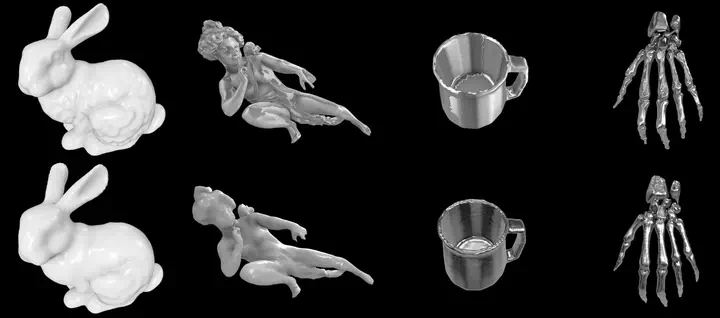
Abstract
Implicit surface learning is one of the most widely used methods for 3D surface reconstruction from raw point cloud data. Current approaches employ deep neural networks or Gaussian process models with the trade-offs across computational performance, object fidelity, and generalization capabilities. We propose a novel method based on Gaussian process regression to build implicit surfaces for 3D surface reconstruction (GPIS), which leads to better accuracy in comparison to the standard GPIS formulation. Our approach encodes local and global shape information from the data to maintain the correct topology of the underlying shape. The proposed pipeline works on dense, sparse, and noisy raw point clouds and can be parallelized to improve computational efficiency. We evaluate our approach on synthetic and real point cloud datasets obtained from laser scans, synthetic CAD objects and robot visual and tactical sensors. Results show that our approach leads to high accuracy compared to baselines.